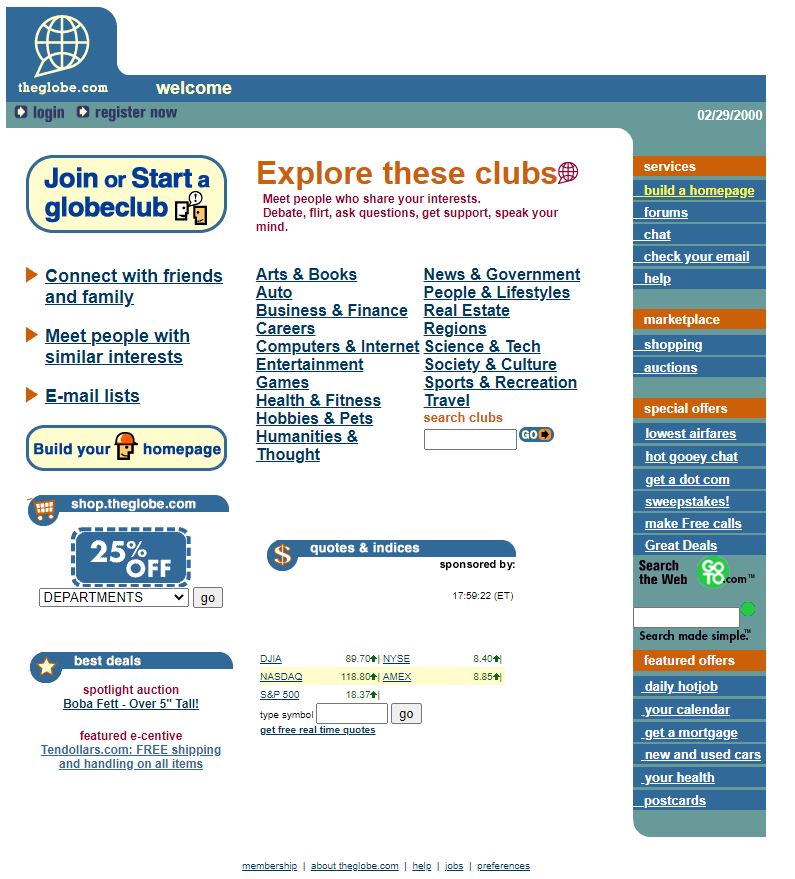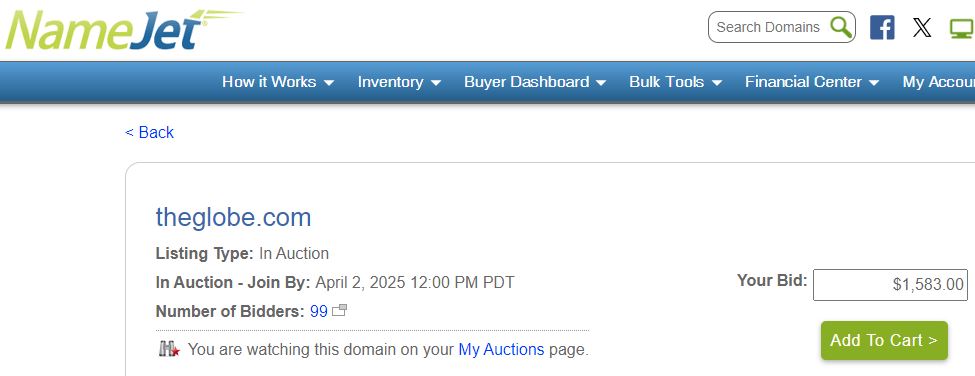In the mid-1990s, the internet was burgeoning into a transformative force, connecting people in unprecedented ways. Amid this digital revolution, two Cornell University students, Stephan Paternot and Todd Krizelman, envisioned a platform that would harness the internet’s potential to foster social connections. This vision materialized as theGlobe.com, a pioneering social networking site that would experience a meteoric rise and an equally dramatic fall, epitomizing the volatile nature of the dot-com era.
The Genesis of theGlobe.com
While undergraduates at Cornell, Paternot and Krizelman became engrossed in the university’s primitive chatrooms. Recognizing the business potential of online communities, they raised $15,000 during the 1994 Christmas break to purchase an Apple Internet Server. They founded WebGenesis and spent the following months developing what would become their primary website. On April 1, 1995, theGlobe.com went live, attracting over 44,000 visits within its first month—a testament to the growing appetite for online social interaction. By the site’s first anniversary, they had recruited 17 employees, many from Cornell’s computer science department.
 Unprecedented Growth and Public Offering
Unprecedented Growth and Public Offering
The rapid success of theGlobe.com did not go unnoticed. In 1997, Dancing Bear Investments infused $20 million into the venture, enabling significant expansion. This financial backing allowed Paternot and Krizelman to draw salaries exceeding $100,000 and earn $500,000 each from preferred share sales. At just 23 years old, they were at the helm of a burgeoning internet enterprise.
The pinnacle of their success came on November 13, 1998, when theGlobe.com went public. The initial public offering (IPO) was nothing short of historic: shares were initially priced at $9 but opened at $87, soaring to a high of $97 before closing at $63.50. This 606% increase set a record for IPOs at the time, raising $27.9 million and valuing the company at over $840 million. Paternot and Krizelman’s holdings were suddenly worth close to $100 million each, catapulting them into the limelight as symbols of the internet gold rush.
Diversification and Expansion
Buoyed by their IPO success, theGlobe.com sought to diversify its offerings. The company ventured into the gaming industry, acquiring Computer Games Magazine, the gaming site happypuppy.com, and the online retailer Chips and Bits. These strategic acquisitions aimed to position theGlobe.com as a comprehensive hub for online entertainment and community engagement.
The Downturn: Media Scrutiny and Market Realities
However, the exuberance was short-lived. In 1999, media scrutiny intensified, focusing on the lavish lifestyles of young tech entrepreneurs. Paternot, in particular, became a target after a CNN segment captured him dancing in a Manhattan nightclub, clad in shiny vinyl pants, proclaiming, “Got the girl. Got the money. Now I’m ready to live a disgusting, frivolous life.” This portrayal earned him the moniker “the CEO in the plastic pants,” symbolizing the perceived excesses of the dot-com bubble.
Simultaneously, investor sentiment began to shift. Skepticism about the “new economy” led to a sharp decline in tech stock valuations. theGlobe.com’s shares plummeted from their $97 peak to less than 10 cents by 2001, reducing the company’s market capitalization by over 95% to approximately $4 million.
Leadership Changes and Strategic Shifts
In response to mounting challenges, Paternot and Krizelman were ousted in 2000, replaced by a former vice president of the American Institute of Certified Public Accountants (AICPA). Despite efforts to pivot and streamline operations—including closing the flagship site and laying off 50% of its workforce in August 2001—the company struggled to regain its footing.
Attempting to capitalize on emerging technologies, theGlobe.com launched GloPhone in 2003, a Voice over Internet Protocol (VoIP) service akin to Skype. Despite partnerships with platforms like Friendster, GloPhone failed to gain traction, hampered by poor reviews and lackluster sales. Legal challenges further compounded the company’s woes, including a patent infringement lawsuit from Sprint Nextel and penalties under the CAN-SPAM Act for unsolicited messaging practices.
Final Attempts and Cessation of Operations
The company’s foray into publishing, including Computer Games Magazine and MMO Games magazine, also faltered. By 2007, anticipating a substantial federal judgment estimated at $120 million, theGlobe.com ceased operations of its remaining ventures. GloPhone discontinued service on March 13, 2007, and the company effectively shuttered its doors, marking the end of a tumultuous journey through the dot-com boom and bust.
Legacy and Reflections
The story of theGlobe.com serves as a cautionary tale of rapid ascent and decline in the volatile tech industry. It underscores the perils of overvaluation, the impact of media scrutiny, and the challenges of sustaining innovation amid shifting market dynamics.
In a poignant epilogue, the domain name theGlobe.com, once the digital epicenter of a multimillion-dollar enterprise, is now listed for auction on NameJet. As of this writing, the current bid stands at $1,583—a stark reminder of the ephemeral nature of internet fortunes. This auction not only highlights the residual value of digital assets but also serves as a metaphor for the rise and fall of early internet pioneers.
Reflecting on the journey of theGlobe.com offers valuable insights into the evolution of online communities, the speculative frenzy of the dot-com era, and the enduring lessons for today’s tech entrepreneurs navigating an ever-changing digital landscape.
To your domaining success,
@AndrewHazen & @DomainSuccess






